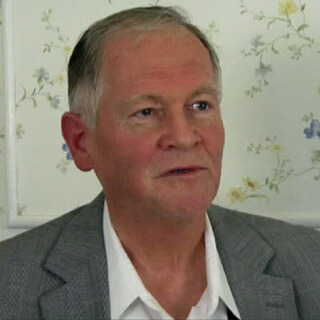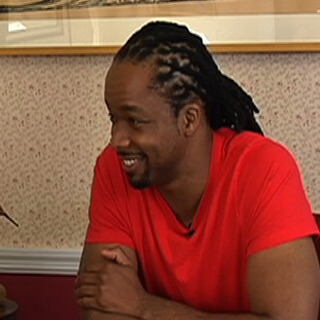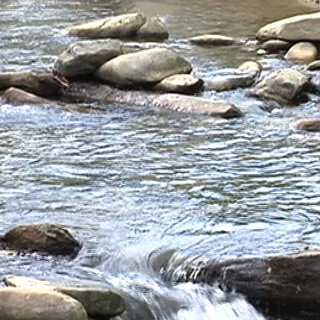Overview
Robert Morgan reads "Bricking the Church" in Zirconia, North Carolina, at Green River Baptist Church. Morgan's poem traces the fraught lineage of the church's architecture, embeddedness, and modernization. This video was produced by Emma Lirette and Clint Fluker.
"Bricking the Church" is part of the Poets in Place series, a Research Collaboration in the Humanities initiative funded through Emory University's Presidential Woodruff Fund, in collaboration with the Office of the Provost. Series producers are Natasha Trethewey and Allen Tullos.
Poem
Robert Morgan reads his poem "Bricking the Church," 2014.
Bricking the Church
At the foot of Meetinghouse Hill
where once the white chapel
pointed among junipers and pulled
a wash of gravestones west,
they've buried the wooden snow that
answered sarvis in bloom
and early morning fogs, in brick,
a crust the same dull red
as clay in nearby gullies.
The little churchhouse now looks more
like a post office or school.
It's hard to find
among the brown winter slopes
or plowed fields of spring.
Brick was prestigious back when
they set their minds and savings to it.
They wanted to assert its form
and presence if not in stone
at least in hardened earth, urban weight,
as the white clapboards replaced
unpainted lumber which replaced
the logs of the original
where men brought their guns to preaching
and wolves answered the preacher.
The structure grows successive rings,
and as its doctrine softens
puts on a hard shell
for weathering this world.
Acknowledgments
"Bricking the Church" from Robert Morgan's book Groundwork (Gnomon Press, 1979) appears here by permission of Gnomon Press.
About the Author
Robert Morgan is the author of fourteen books of poetry, most recently Terroir, 2011. He has also published nine volumes of fiction, including Gap Creek, a New York Times bestseller. A sequel to Gap Creek, The Road From Gap Creek, was published in 2013. A new novel, North Star, is forthcoming in 2015. In addition, he is the author of three nonfiction books, Good Measure: Essays, Interviews, and Notes on Poetry, 1993; Boone: A Biography, 2008; and Lions of the West: Heroes and Villains of the Westward Expansion, 2011. In 2010 a special issue of Southern Quarterly, edited by Jesse Graves, was devoted to essays about his work. He has been awarded the James G. Hanes Poetry Prize by the Fellowship of Southern Writers and the Academy Award in Literature by the American Academy of Arts and Letters. In 2013 he received the History Award Medal from the Daughters of the American Revolution. Recipient of fellowships from the Guggenheim and Rockefeller foundations, the National Endowment for the Arts, and the New York State Arts Council, he has served as visiting writer at Davidson College, Furman, Duke, Appalachian State, and East Carolina universities. A member of the Fellowship of Southern Writers, he was inducted into the North Carolina Literary Hall of Fame in 2010. Born on October 3, 1944 in Hendersonville, North Carolina, he has taught since 1971 at Cornell University, where he is Kappa Alpha Professor of English.
Recommended Resources
Text
Graves, Jesse, ed. "Robert Morgan." Special issue, Southern Quarterly 47, no. 3 (Spring 2010).
Lang, John. Appalachia and Beyond: Conversations with Writers from the Mountain South. Knoxville: University of Tennessee Press, 2006.
Morgan, Robert. Groundwork. Frankfort, Kentucky: Gnomon Press, 1979.
———. The Strange Attractor. Baton Rouge: Louisiana State University Press, 2004.
———. Terroir. New York City: Penguin, 2011.
Wright, William. "INTERVIEW: Robert Morgan—The Tarheel Wordsmith." Oxford American, January 22, 2013.
Web
Robert Morgan: Official Author Website. 2013. http://www.robert-morgan.com.
"Robert Morgan." Poetry Foundation. 2006. http://www.poetryfoundation.org/bio/robert-morgan.




